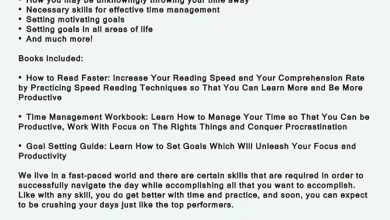Problem Solving Skills For Marketing Professionals

In today’s rapidly changing business landscape, marketing professionals face many challenges that require them to think critically, strategically, and creatively. From developing effective marketing campaigns to managing customer relationships, marketing professionals must have strong problem-solving skills to succeed.
Problem-solving skills for marketing professionals include a range of abilities, such as analytical and critical thinking, communication, interpersonal, collaboration, leadership, and soft skills.
It is not just about finding quick fixes to specific issues; it’s about developing a mindset that enables you to approach challenges systematically and proactively.
In this article, we will explore the problem solving skills for marketing professionals to cultivate and thrive in their careers. So, if you’re ready to enhance your problem-solving skills and take your marketing career to the next level, let’s dive in.
Which Are The Strategies For Effective Problem-Solving For Marketing Professionals?
Effective problem-solving requires a strategic approach that helps marketers identify challenges, develop solutions, and achieve their goals. The following are some key strategies for effective problem-solving in marketing:
- Problem-Solving Strategies: Problem-solving strategies are a set of methodologies and techniques that enable marketers to address challenges in their marketing campaigns.
- Digital Marketing Strategies: Digital marketing strategies refer to marketers’ techniques and methodologies to promote their products and services online.
- Marketing Strategies: Marketing strategies are techniques and methodologies marketers use to promote their products and services. These strategies involve market research, segmentation, targeting, positioning, product development, pricing, promotion, and distribution.
- 10 Effective Problem-Solving Strategies: Effective problem-solving strategies are methods and techniques that enable marketers to address challenges in their marketing campaigns.
- Analytical Strategies: Analytical strategies refer to the techniques used by marketers to analyze data and derive insights that inform their marketing strategies. Analytical strategies involve data analysis, market research, customer segmentation, and predictive analytics.
What Are The Problem Solving Skills For Marketing Professionals?
Problem-solving in marketing requires diverse skills that allow professionals to identify challenges, develop solutions, and achieve their goals. Below are some essential skills for effective problem-solving in marketing:
- Communication Skills: Effective communication skills are essential for successful marketing problem-solving.
- Analytical Skills: Marketing professionals must have strong analytical skills to understand customer behavior, market trends, and industry data.
- Interpersonal Skills: Interpersonal skills are crucial for successful problem-solving in marketing.
- Soft Skills: Soft skills, such as empathy, creativity, and adaptability, are also essential for successful problem-solving in marketing.
- Collaboration Skills: Marketing professionals often work in teams, so collaborating effectively is essential for successful problem-solving.
- Critical Thinking Skills: Critical thinking skills allow marketing professionals to evaluate different solutions, identify potential challenges, and develop effective strategies.
- Leadership Skills: Leadership skills are also crucial for successful problem-solving in marketing.
How Marketing Professionals Create Successful Marketing Campaigns Through Problem-Solving?
Successful marketing campaigns through problem-solving involve using various strategies to connect with the target audience and meet the campaign objectives.
- Advertising campaigns involve creating ads that capture the target audience’s attention, communicate the brand message, and drive conversions. To be successful, marketers need to use their problem-solving skills to identify the best advertising channels, messaging, and creative elements.
- Email marketing can be successful through problem-solving. Marketers need to create targeted email content that resonates with the audience, build an email list, and monitor the campaign performance.
- Social media campaigns involve creating engaging content that connects with the target audience on social media platforms such as Facebook, Instagram, and Twitter. Marketers need to use their problem-solving skills to identify the best social media channels for their audience, create content that resonates with the audience, and engage with them.
What Is The Role Of Problem-Solving Skills In Management For Marketing Professionals?
Problem-solving skills play a crucial role in management positions across various domains, including time management, stress management, project management, and social media management. Effective management requires identifying problems, analyzing them, and developing solutions that drive performance and success.
- Time Management: Effective time management requires prioritization, scheduling, and delegation of tasks. By utilizing problem-solving skills, managers identify bottlenecks, manage their workload, and optimize their time to ensure they meet their goals and objectives.
- Stress Management: Managers must manage their stress and help their teams manage it to maintain a productive work environment. Problem-solving skills come in handy in identifying the sources of stress, developing strategies to mitigate them, and creating a positive work environment that fosters productivity.
- Project Management: Project management involves managing resources, timelines, and budgets to ensure that projects are completed within the specified timeframe and budget. Problem-solving skills are crucial in managing projects by identifying challenges, creating solutions, and minimizing risks.
- Social Media Management: This includes managing the online presence of a brand or organization on social media platforms such as Facebook, Twitter, Instagram, and LinkedIn. Social media managers need to use their problem-solving skills to identify the best social media channels for their target audience.
How Marketing Professionals Set And Achieve Goals Through Problem-Solving For?
Setting and achieving goals through problem-solving is an essential aspect of marketing. Here are some key terms related to setting and achieving goals through problem-solving:
- Achievable Goals: Achievable goals require a balance between ambition and practicality, and they are used to motivate marketing teams to achieve their targets.
- Personal Goals: Personal goals are objectives focused on an individual’s personal growth and development. These goals involve improving skills, expanding knowledge, or achieving a career milestone.
- Ambitious Goals: Ambitious goals are challenging and require significant effort to achieve. These goals need marketers to think creatively and develop innovative solutions to overcome obstacles.
- Attainable Goals: Attainable goals are realistically accomplished with the resources and time available. These goals require marketers to develop a clear plan and use their problem-solving skills to identify and address obstacles.
Problem-Solving Skills For Businesses And Sales Teams
Problem-solving skills are essential for success in various business areas, including business ownership, sales, and management. Below are some key areas where problem-solving skills play a crucial role:
- Business Owners: Business owners face numerous challenges, including market competition, financial management, and customer satisfaction. Problem-solving skills are crucial for identifying and addressing these challenges to ensure the business’s success.
- Business Minors: Business minors typically study foundational business principles, including finance, accounting, and marketing. Problem-solving skills are essential for applying these principles to real-world business challenges.
- Sales Resumes: In the sales industry, employers highly value problem-solving skills. Sales professionals need to be able to identify customer needs, address objections, and close deals effectively.
- Sales Deals: Sales professionals often encounter complex problems when closing deals, such as addressing objections and negotiating prices. Effective problem-solving skills are essential for developing innovative solutions to these challenges and achieving successful outcomes.
- Sales Process: The sales process involves numerous stages, including prospecting, lead generation, and customer relationship management. Effective problem-solving skills are crucial for identifying and addressing challenges at each stage of the sales process.
How Do Marketing Professionals Identify Potential Customers, Build Relationships, And Receive Feedback?
Customers are individuals or organizations that purchase goods or services from a business. They are the lifeblood of any business as they provide the revenue necessary to survive and grow.
- Potential Customers: Potential customers are individuals or organizations that have not yet purchased from a business but have the potential to become customers in the future. Marketing efforts often target potential customers to attract them to the business and convert them into paying customers.
- Customer Feedback: Customer feedback is information customers provide about their experiences with a business’s products or services. This feedback is valuable as it provides insights into areas where the business is doing well and areas where improvements are needed.
- Customer Relationships: Customer relationships refer to the ongoing interactions between a business and its customers. Strong customer relationships are important, leading to customer loyalty and repeat business.
What Is The Importance Of Professional And Life Experiences In Developing Effective Problem-Solving Skills In Marketing?
Relevant professional and life experiences are essential for marketing professionals to develop effective problem-solving skills.
Professional experiences provide a deeper understanding of marketing principles and tactics, while life experiences can offer unique insights into cultural trends and societal issues.
These experiences help marketing professionals build confidence and a proactive mindset, allowing them to become better problem solvers, communicators, and more culturally aware marketers.
Read More:
How To Prove Communication Skills? Effective Tips
Why Is Goal Setting Important For Motivation And Success?
How To Become A Project Manager Without Experience: Secret Tips For You!
Conclusion
This article has provided valuable insights into problem solving skills for marketing professionals. By highlighting key strategies for effective problem-solving, the role of problem-solving skills in management positions, sales, and customer relationships, and the importance of relevant professional and life experiences.
This article has equipped marketing professionals with the tools and knowledge to excel in their careers. With the ever-changing marketing landscape, marketing professionals must possess problem-solving skills to stay competitive and drive business success.



